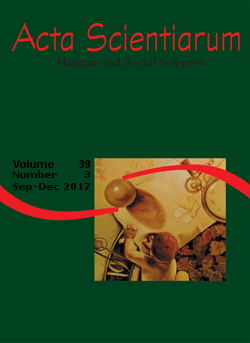<b>Microcredit: origins, poverty and banking exclusion in Brazil
Abstract
This paper presents conceptual and historical aspects about microcredit. Given that, credit markets are imperfect with market failure and credit rationing, limiting the access of the poor. Despite the microfinance growth, critics accuse it of not being effective in overcoming poverty. In Brazil microcredit programs emerged from grassroots initiatives and actions of public policy, especially with the introduction of the Oriented Productive Microcredit Program, in 2005. This work found some difficulty on banking services access, in general, such problem is known as banking exclusion. The poorest and isolated people are those who are most affected, given a strong correlation between the absence of banking credit and poverty in Brazil. The correspondent bank did not solve this problem because, despite offering the most essential banking services they are not able to provide microcredit.
Downloads
DECLARATION OF ORIGINALITY AND COPYRIGHTS
I Declare that current article is original and has not been submitted for publication, in part or in whole, to any other national or international journal.
The copyrights belong exclusively to the authors. Published content is licensed under Creative Commons Attribution 4.0 (CC BY 4.0) guidelines, which allows sharing (copy and distribution of the material in any medium or format) and adaptation (remix, transform, and build upon the material) for any purpose, even commercially, under the terms of attribution.
Read this link for further information on how to use CC BY 4.0 properly.























